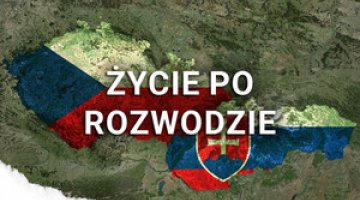Pre-election reshuffles in Czech politics
The announcement of early elections has brought to an end the months-long crisis on the Czech political scene, which was caused in June by a spectacular series of raids by the Czech police and prosecutors on the inner circle of the then prime minister Petr Nečas. The main beneficiary of the collapse of the centre-right government was President Miloš Zeman. By appointing a cabinet favourable to him under the new PM Jiří Rusnok, Zeman greatly expanded his influence in the country. Although Rusnok’s government did not win a vote of confidence in the Chamber of Deputies, it will remain in charge until a new cabinet is formed after the October elections.
The main influence on pre-election public sentiment in the Czech Republic is the economic situation. After six quarters of recession, the Czech Republic has recorded some growth in GDP (0.7%), but this has come as a result of a recovery in exports, which is linked to rising consumption in Germany. Consumption in the Czech Republic remains stagnant, and unemployment is rising (7.5% according to Eurostat). Thanks to the previous government’s strong economic policies, the Czech Republic has sound public finances and low debt costs. However, opinion polls suggest that the Czech public is tired of austerity policies based on cuts and tax increases. Last week also witnessed an increase in public anti-Roma sentiment; on 24 August further such demonstrations were held in six Czech towns, which were attended by about 2000 people. Some of these demonstrations were initiated by the small Workers’ Party of Social Justice (DSSS), which is known for its xenophobic language, although the participants in the protests are mostly frustrated ordinary citizens. The main political forces have condemned the violent local protests, although they have not yet put forward any concepts for resolving the growing problem of the Roma community. It is possible that some politicians will start to employ anti-Roma rhetoric during the campaign, in the hope of gaining support from that part of the electorate.
The disintegration of the centre-right
The vote to bring the current session of the Chamber of Deputies to an early end on 20 August was supported by almost all the parliamentary groups, apart from the Civic Democratic Party (ODS), which boycotted the vote by leaving the chamber. The other former centre-right coalition parties, the conservative TOP 09 and the centrist LIDEM, were in favour of early elections, as were the Czech Social Democratic Party (ČSSD), the Communist Party of Bohemia and Moravia (KSČM) and the centrist Public Affairs party (VV). The vote confirmed the split in the ranks of the former centre-right coalition, which was dictated by the various parties’ conflicting interests. TOP 09 (currently polling at 15%) is seeking to take some voters from the ODS (13.5%), which was discredited in the recent corruption and sleaze scandals and has been plunged into a leadership crisis. TOP 09 presents itself as the defender of liberal parliamentary democracy against the authoritarian inclinations of the president, who has control over the entire left. The ODS is largely occupied with its own problems, and some politicians in the party see an opportunity for improvement in the return of the former President Václav Klaus, who founded the party. It is unlikely that Klaus will decide to return to active politics, although it is possible he will grant his patronage to one political movement or another before the elections. Conversations with Klaus about possible co-operation have already been initiated by Suverenita, a small group calling for the defence of the Czech Republic against the diktats of the EU. The third member of the former centre-right coalition, the fringe LIDEM party, has no chance of winning any parliamentary seats, although individual politicians from this party may join the list of candidates of some of the larger parties.
Clashes on the left
The firm favourite to win the elections is the ČSSD, which according to a recent survey can count on about 32% of the vote. The party has promised voters economic recovery through public investments, and a move away from liberal reforms (additional fees in the health sector, a second ‘pillar’ for the pension system). The ČSSD’s problem, however, is the leadership dispute between the party’s president and vice-president over a formula for cooperation with President Zeman, a former long-term leader of the Social Democrats. This problem is not shared by the Communists, who according to the polls may be the second biggest party in the next parliament (currently polling at 15.5%). Their programme is similar to that of the ČSSD, although they have a completely different approach to foreign policy (including a demand to leave NATO). The Communists have not attracted many new voters, but thanks to their disciplined electorate they may be able to strengthen their position in the event of low voter turnout. The Party of Citizens’ Rights-Zemanovci (SPOZ) also has a programme similar to the ČSSD, enhanced with demands from Zeman’s presidential campaign. This grouping is strongly supported by the President and his inner circle. The candidate lists for SPOZ will probably be boosted by some ministers from Rusnok’s government, as well as the head of the Presidential Office, the party’s former leader (although he does not plan to give up his office for the duration of the campaign). President Zeman himself, the honorary chairman of SPOZ, has regularly repeated that he would vote for this group. Despite such strong support, the party is currently only running at around 5% in the opinion polls.
Forecast
There are many indications that Zeman’s aim is to create a broad left-wing coalition between the ČSSD, the KSČM and SPOZ. The president could then become a mentor and arbiter in any disputes within such a coalition. This would allow him to maintain a strong informal influence on the work of the new government, especially since he is now able to control SPOZ, and has a following of loyal supporters within the other two parties. The Zeman-sceptic wing of the ČSSD will probably work to establish a coalition of centrist and right-wing groups. One convenient ally could be the Christian Democratic Union-Czechoslovak People’s Party (KDU-ČSL), which is fighting for a return to the Chamber of Deputies; its support is fluctuating around the 5% electoral threshold. Less likely, although not impossible, would be Social Democrats’ collaboration with TOP 09 or ODS.
The Social Democrats’ highly likely return to power would result in a large departure from the liberal reforms undertaken by the governments of Mirek Topolánek and Petr Nečas. Nevertheless, one should not expect any major changes in foreign policy. The nominations of the career diplomats Hynek Kmoníček as head of the foreign section of the President’s Office and Jan Kohout as foreign minister in Rusnok’s cabinet, and the decision to leave Vlastimil Picek in his post as head of the Defence Ministry (a position he also held in Nečas’s cabinet) show that Zeman’s camp is interested in maintaining continuity in the areas of policy and defence.





